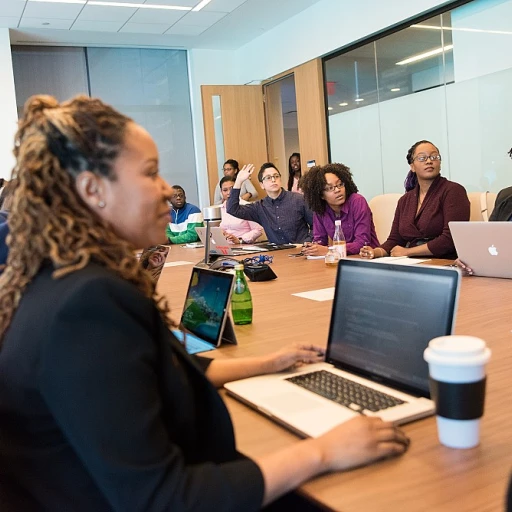
The Role of HR in Employee Retention
The Unsung Role of HR in Retaining Talent
In today's competitive work environment, retaining top talent has become increasingly important for companies striving to maintain a strong workplace culture. Human resources professionals play a crucial role in orchestrating this vital aspect of organizational success. By focusing on employee engagement and creating a positive work environment, HR professionals help foster a culture where employees feel appreciated throughout the year, not just on HR Appreciation Day. The intricate work done by HR teams often goes unnoticed, yet their efforts form the backbone of employee retention strategies. From implementing effective employee recognition programs to developing professional development opportunities, human resources professionals dedicate their time and expertise to ensure employees feel valued and motivated. Moreover, HR departments are pivotal in crafting initiatives that enhance employee happiness and drive team spirit. By actively working towards building a culture of recognition and appreciation, HR professionals contribute to a more connected and collaborative workplace. One of the instrumental ways HR facilitates retention is through employee referrals. Not only do employee referrals have the potential to bring new talent into the organization, but they also strengthen the existing workforce by harnessing the power of word-of-mouth recruitment. Discover how implementing strategic employee referral programs can be beneficial for retention efforts here. Ultimately, HR's dedication to celebrating and appreciating employees leads to increased satisfaction and loyalty, fostered by recognition of their hard work and contributions. As organizations continue to evolve, the role of HR in employee retention becomes even more significant, ensuring a comprehensive approach to nurturing talent and sustaining long-term growth.Challenges Faced by HR Professionals
Confronting the Unique Challenges
Human resources professionals face an array of unique challenges in fostering employee retention within a company. At the forefront, HR teams must constantly balance the intricacies of people management with strategic organizational goals. This requires a deep understanding of the workplace culture and an ability to create environments where employees feel appreciated and motivated.
The multifaceted nature of HR tasks, such as professional development and team building, demands a thorough evaluation of the existing work environment. A significant challenge HR faces is recognizing and adapting to the evolving needs of both the organization and employees. This adaptability is crucial for professional resource management, especially in maintaining employee engagement throughout the year.
Moreover, developing and implementing effective employee recognition programs can be daunting. These programs must align with the organization's values and still offer genuine appreciation for hard work. Coupled with the pressure of catering to diverse human resource needs, HR professionals often find themselves at the crossroads of balancing strategic dynamics with emotional intelligence.
Despite advancements in the HR field, the demands on HR teams to facilitate seamless communication and efficient problem-solving mechanisms remain. The need to cater to a diverse workplace culture adds further complexity to their role, intensifying the demand for innovative retention strategies.
For HR professionals, their hard work often goes unnoticed, yet it is fundamental to creating a positive work environment. To further understand the scope of these challenges and their solutions, explore insights on the power of recognition in the context of employee appreciation and retention.
Innovative Retention Strategies
Innovative Strategies for Employee Retention
As organizations strive to keep their talented personnel motivated and satisfied, innovative strategies play a critical role in enhancing employee retention. Human resource professionals are at the forefront, integrating new methods and practices that cater to the evolving needs of the modern-day workforce. Firstly, creating a positive work environment is paramount. A nurturing atmosphere where employees feel appreciated and part of a cohesive team can significantly reduce turnover rates. Companies are now focusing on building a culture of recognition, where hard work and dedication are consistently acknowledged through personalized and meaningful gestures. Incorporating professional development opportunities within the organization is another vital strategy. Offering regular skill enhancement workshops or peer-to-peer learning sessions encourages continuous growth and demonstrates a commitment to employee advancement. Such initiatives foster a sense of loyalty and engagement, making the workplace more attractive. Employee recognition programs have taken a front seat in enhancing retention. For instance, acknowledging achievements through organization-wide platforms or during national and international appreciation days can amplify the impact of these efforts, making employees feel truly valued. These practices, coupled with resource professional day celebrations, underscore the company's appreciation for its people's contributions. Furthermore, crafting a comprehensive employee action plan is essential for addressing individual needs and aspirations. With a structured approach, human resource teams can offer tailored solutions that nurture employee satisfaction and commitment. For more insights on developing such a plan, consider exploring a comprehensive employee action plan template. Lastly, forging strong connections through team-building exercises fosters camaraderie. When team members feel connected, collaboration and productivity naturally flourish. Such bonds are instrumental in cultivating a resilient and united organization, where employees perceive their work as more than just a job—it becomes a meaningful part of their lives."The Impact of HR Appreciation Day
Recognizing the Transformative Power of HR Appreciation
Appreciating human resource professionals through dedicated events like HR Appreciation Day is not just a formality—it's an impactful gesture that ripples across the entire organization. The work done by HR is often behind the scenes, making it essential for companies to formally recognize their hard work, emphasizing appreciation in the workplace culture. When a company takes the initiative to celebrate these unsung heroes, it sets a tone of gratitude and acknowledgment within the broader workplace culture. This acknowledgment can significantly contribute to employee engagement, as appreciation from the top down fosters a positive and supportive work environment. Additionally, celebrating this professional day can highlight the importance of HR in developing strong teams, promoting a culture where everyone actively participates in recognizing and valuing each other’s contributions. The professional development of HR professionals is equally important, as it equips them with the tools needed to create a more harmonious and engaging work environment for all employees. Moreover, a day set aside for human resource appreciation underscores the dedication of these professionals who work tirelessly to maintain employee satisfaction and retention. By making employees feel appreciated and highlighting the role of HR, companies can inspire a greater sense of belonging and commitment throughout the year. Encouraging such appreciation also aids in aligning the organization's goals with HR practices, promoting a culture of continual employee recognition and development, ultimately leading to improved retention rates. This approach establishes a culture of recognition that bolsters both employee satisfaction and company loyalty.Building a Culture of Recognition
Creating a Culture of Celebrating Achievements
In any thriving organization, the value of establishing a workplace culture that highlights employee recognition can't be overstated. This goes beyond just an annual event or employee appreciation day; it requires consistent efforts to ensure every individual feels acknowledged for their hard work and dedication. Building a culture of recognition involves several key elements:- Regular Acknowledgment: Encourage managers and team leaders to recognize achievements, big and small, regularly. This helps employees feel appreciated and valued for their daily contributions to the company.
- Peer Recognition: Foster an environment where employees can openly praise each other's successes. Peer recognition can be an uplifting aspect of team building, enhancing employee engagement and reinforcing positive workplace culture.
- Celebrate Milestones: Whether it's an employee's work anniversary, completion of a major project, or a professional development achievement, celebrating these moments reinforces a culture of appreciation.
- Incorporate Human Touch: Personalized notes, whether handwritten or through digital communication, can go a long way in making employees feel recognized beyond their surface contributions.
Future Trends in HR and Retention
Embracing Change: The Future of HR Retention Strategies
The future of human resource management and employee retention is on the brink of significant evolution. As we traverse into a new era, HR professionals must be adept at anticipating and embracing transformations across the workplace landscape. Here are some vital trends that are shaping the future trajectory of employee retention initiatives.- Technological Advancements: Technology continues to revolutionize how organizations manage their human resources. Tools like AI and data analytics empower HR professionals to predict employee turnover and proactively implement strategies to enhance engagement and satisfaction. This not only aids in creating a work environment where employees feel appreciated but also supports the strategic objectives of a company.
- Remote and Hybrid Work Models: With flexible work arrangements becoming more prevalent, HR teams must adapt retention strategies to accommodate employees operating in dispersed locations. Companies that successfully foster a culture of recognition across virtual platforms can maintain high engagement levels and team cohesion, ensuring that every employee feels part of the broader company vision.
- Focus on Employee Well-being: Organizations are increasingly recognizing the importance of holistic well-being to retain talent. Future-oriented companies are likely to enhance benefits such as mental health resources, fitness programs, and work-life balance initiatives to keep their workforce motivated and committed.
- Personalized Employee Development: The emphasis on tailored professional development continues to rise. HR will need to invest in understanding individual aspirations and creating meaningful pathways for career advancement, fostering a culture where employees can grow alongside the organization.
- Diversity and Inclusion Initiatives: Building an inclusive workforce is not just a goal but a necessity for modern organizations. Crafting retention strategies that value workplace diversity will be crucial in promoting innovation and addressing the unique needs of each employee.












